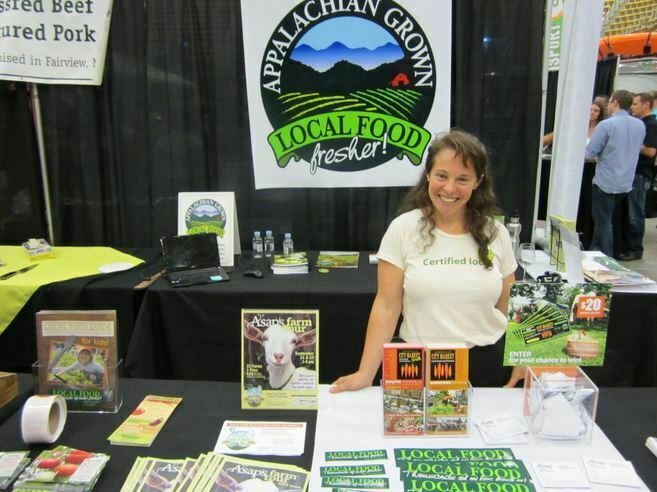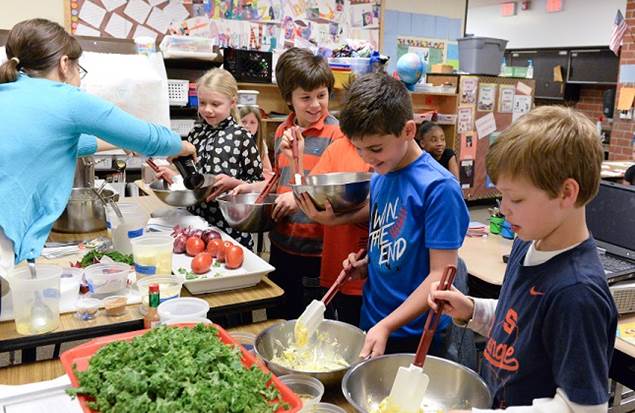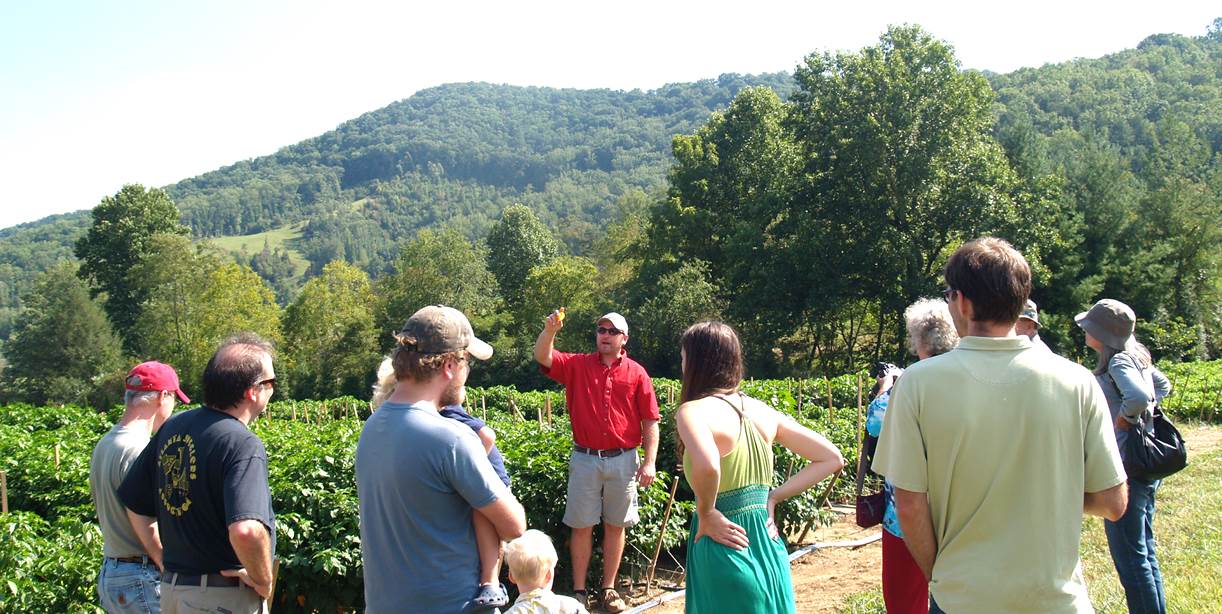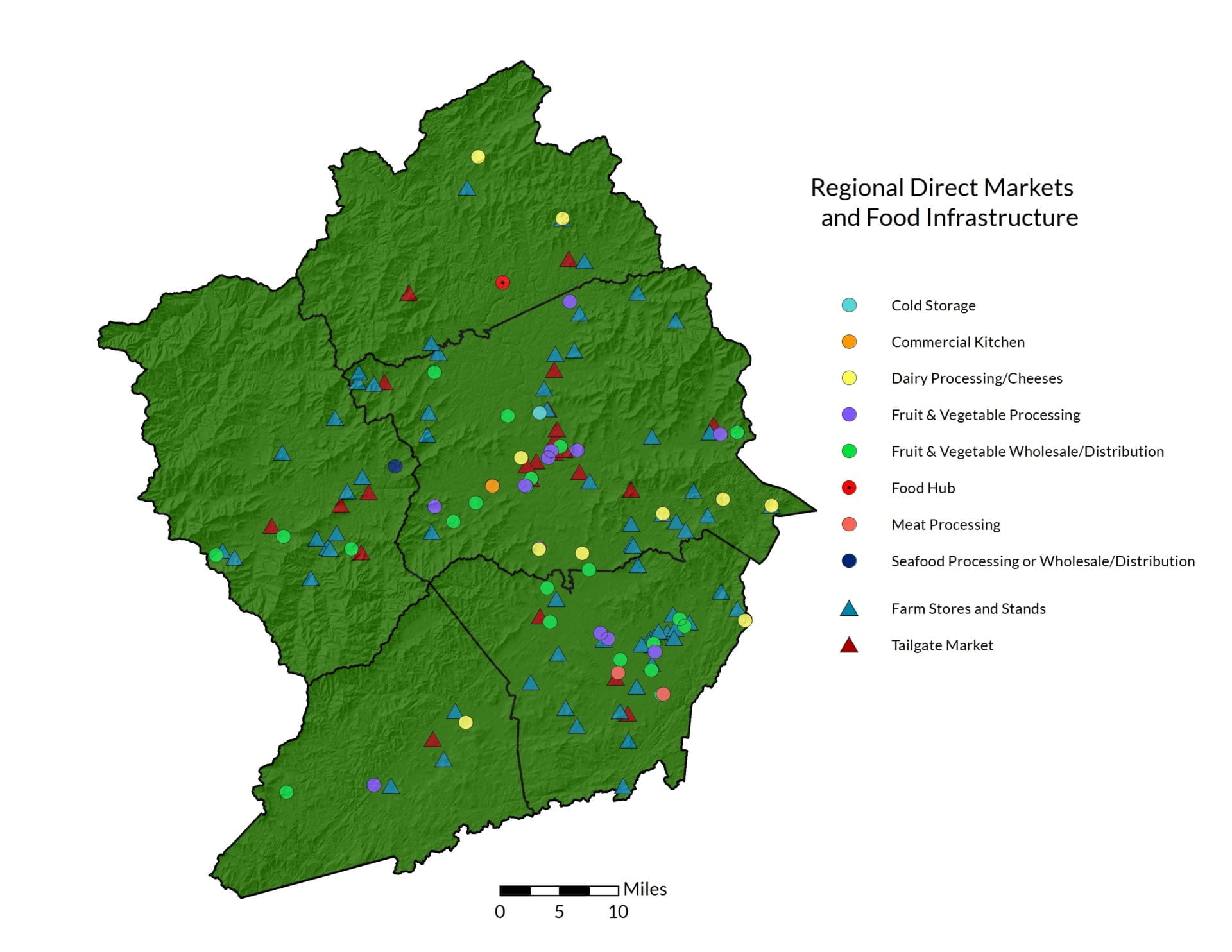In 2000, Appalachian Sustainable Agriculture Project (ASAP) began a local food initiative in the Southern Appalachian region of Western North Carolina (WNC). The Local Food Campaign was designed to engage the public with local farms, create demand for locally grown food, and build market capacity for local product. ASAP’s Local Food Campaign was one of a handful in the country responding to the loss of farms and farmland and to the decline of rural communities due to globalizing markets, changes in federal policy, and food industry consolidation. Almost 15 years later, what began as a marketing strategy to help sustain farming has grown to be about more than just supporting the farms. Against a backdrop of growing public awareness about the negative impacts of the food industry and interest in healthier eating, local food has emerged in WNC as a way for residents to reconnect to the sources of our food, explore our region’s rich heritage, and eat great food!
Today, local farms and locally grown food are defining features of WNC. “Local” is everywhere. Over the past dozen years, the number of farmers markets has grown from just a handful to nearly 100, and the number of farms with CSAs (Community Supported Agriculture programs) from just 10 to over 100. Area residents and visitors can participate in countless farm tourism activities, including farm tours, u-picks, winery tours, Cycle to Farm events, cheesemaking, food festivals, and more.
Local food and farm experiences/firsthand experiences with local food and farms have a powerful and positive effect on the people that participate in them. Farm field trips, cooking demonstrations with seasonal ingredients, local food tastings, meet-the-farmer events, school gardens, and other hands-on activities engage people positively with local agriculture. These types of positive experiences influence the formation of food preferences and eating habits, develop local food and farm advocates, and, in the long term, create healthier individuals and communities. For example, in one study researchers found that when study participants engaged in the process of growing of food and purchasing local and organic foods, they experienced increases in their scientific and technical knowledge, social and economic knowledge, knowledge and experience with legal, administrative and political procedures, and gained new insights into the inner workings of their own communities (Kerton and Sinclair, 2009). As people interact with food, farms, and farmland, their awareness of food production increases and they come to understand how their choices affect themselves and the world around them.

Experiencing the food system and understanding the impacts of food production empowers individuals to align their values with their decisions about food and eating. People then become active participants in the local food system and realize that they have the ability to positively or negatively affect that system. That empowerment, derived from engagement in the local food system, helps individuals better understand how they can exercise their power to change the food system to one that is more transparent and better supports area farms, food and farm workers, the environment, personal health, and the entire community.
Research from the health sciences demonstrates that food habits and preferences are directly impacted by positive and negative experiences. Preferences for food develop in positive contexts, and aversions to foods develop in negative contexts. In other words, children and adults who have positive experiences with local farms and food tend to appreciate local farms and food. Evidence of the connection between local food experiences and positive health impacts can be seen in a number of research studies. For example, one study in Kentucky found that farmers market shoppers consume more fruits and vegetables per day on average than the general population as a whole (Mayes, 2013). Another national study found that for each additional farmers market present in a county, obesity and diabetes rates decrease (Ferrer and Fonsah, 2011). By itself, shopping at farmers markets or attending a farm tour cannot directly improve individual or community health, but according to the research, encouraging people to participate in local farm and food events in their community is an effective means of encouraging fresh fruit and vegetable consumption to combat diet-related illness.
To further explore this topic, interact with the data in the Land of Sky Map Viewer. Available datasets that are most pertinent to the Engaged Community discussion include:
- Percent change in farmland acres
- Food infrastructure
- Appalachian Grown farms and businesses
- Proportion of farms with direct sales
- Direct markets
- Diabetes rate
- Obesity rate




